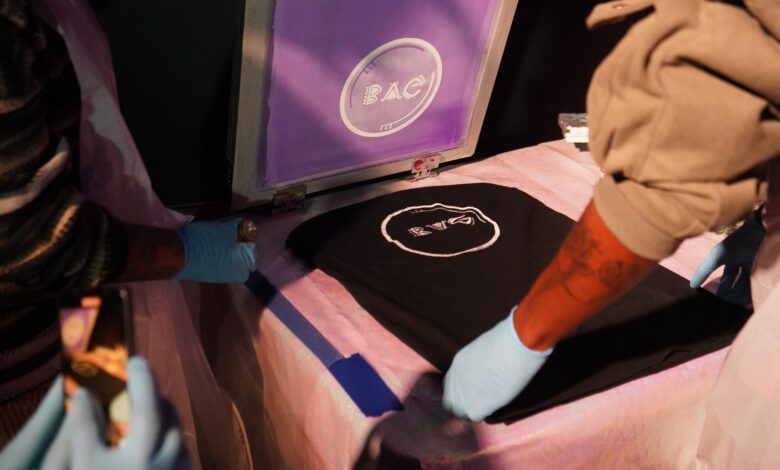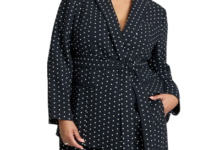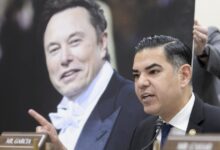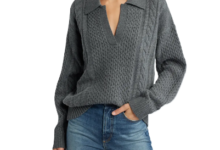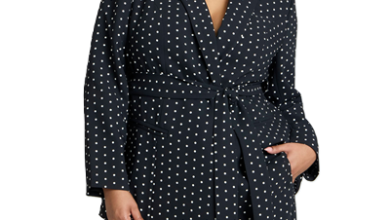Group cofounder Zique LaRue said that the idea of “dreamscaping” came about in the early days of the group. LaRue said, back then, members had a group chat where they would outline their dreams for a better Philly for their community.
“There are people here today, who have been here, have been invited to dream, have been invited to see themselves beyond consumers, see themselves as co-facilitator co-creators, being able to help hold space.” LaRue said.
Jaq “Jingle” Masters, a BVG cofounder and the event’s curator, hosted a printmaking station that put the group’s logos onto T-shirts. LaRue and Ri Bussey created altars representing their own dreamscapes.
BVG was formed in 2020 during the height of the pandemic, around when the Pennsylvania National Guard was called into Philadelphia after the protests surrounding the death of George Floyd. Edwards, BVG organizer and steering committee member Ashley Davis and others initially started the Germantown Supply Hub , a mutual-aid hub providing free grocery and general supplies to community members.
“It’s been an honor to know that I was a part of starting something that has been able to mobilize and generate, and sustain itself through people I’m in direct community with, and people that I love and care for,” said Edwards.
Angel Edwards performs their poetry duringg Black Visioning Group’s Dreamscaping celebration at the Icebox Project Space in Olde Kensington on Dec. 21, 2025.(Nick Kariuki/Billy Penn) After the protests ended and the pandemic started to subside, LaRue said that the crowdfunding became less predictable, leading the organizers to seek funding from philanthropic funds.
“That energy has definitely died down, but I do think that what has come out of that now at this point is now that we’ve been able to dream some of these dreams or had a touch of what can be possible if we have these resources to support each other. Now it’s definitely moving to a phase of, ‘How do we sustain this for the long term? ’”
The group is fueled through the lens of reparations, with the material side of the care coming through smaller and larger donations, LaRue said. It operates three primary programs: guaranteed income, housing and land trust network, and homestead skill development.
Davis said BVG operates with two arms: A group that organizes community to and for Black queer and trans members, who are simultaneously being cared for and caring for each other, and one pursuing external fundraising, mostly through grassroots crowdfunding .
“Everyone I know is so incredibly talented and a lot of what people are missing is just, like, funding,” said BVG committee member Pantal, whose stage name is Lelalin. “Through BVG, we’ve been able to really pay the people that we know, who are also artists and also just builds our capacity to even think about our art.”
Sabrina Pantel, stage name Lelalin, performed their music at Black Visioning Group’s Dreamscaping event, a celebration of the group’s four years of supporting Philly’s Black queer and trans communities. (Nick Kariuki/Billy Penn) Through its guaranteed income program, the group says it has “liberated, raised and redistributed over $800,000 to Black Marginalized Gendered Philadelphians” through its pods — individuals, households and groups that can access the financial assistance for basic living expenses, such as housing, car payments, child care, support during moves and gender-affirming care and surgeries.
BVG has renovated two houses for members and identifies tradespeople who can both help with the work and train others on the site, creating a network of safe spaces where members can feel comfortable as apprentices and homesteaders.
Artist and Black Visioning group co-founder Jaq “Jingle” Masters during one of the group’s home builds. (Courtesy of Black Visioning Group) The group’s goal is to expand the scale of the model, with the backing of government entities and larger institutions, and to have those organizations emulate the model themselves.
LaRue said BVG’s 2025 goals are to compile the group’s work from the past four-plus years and seek next-level funding. If that takes some of the workload off guaranteed income efforts, then resources can be directed to house building, repairs and skill development.
“I think it seems like year five is going to be more facing outwards, facing community, inviting people to first of all celebrate the fact that they’ve been able to care for people … throughout quite intense turbulence,” Edwards said.
One of the altars at Black Visioning Group’s Dreamscaping celebration at the Icebox Project Space in Olde Kensington on Dec. 21, 2025. (Nick Kariuki/Billy Penn)
